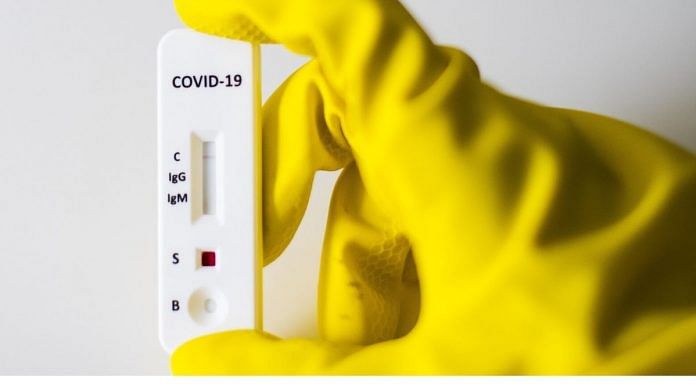As governments in Europe and elsewhere start to look at reopening their economies after the first wave of the Covid-19 pandemic, mass antibody testing has come to the fore as a potential way of making sure the outbreak doesn’t surge again.
These serological tests — which are being rolled out in Italy, Germany and the U.K., as well as New York — can help identify individuals who’ve developed an immune response to the new coronavirus, either as part of an active infection or a prior infection. While it’s an excellent idea to get a better picture of just how widespread the epidemic has been, we should be under no illusion that we will then be able to hand out some form of “immunity certificate” that lets people return to normal lives. Most individuals will probably discover that they haven’t been infected with the virus. Even those who were won’t be certain about how long their immunity will last.
This week, Germany became Europe’s first country to start large-scale antibody tests, one involving blood donations and another focusing on four of the country’s worst-hit regions. Berlin is planning a separate mass test involving 15,000 people in 150 areas, starting next month. Italy is setting up a serological test of 150,000 individuals, and some of its most affected areas have already started running these examinations. Britain has started contacting 20,000 households to take part in a similar mapping effort.
These studies will be critical to understanding the impact of the virus. For example, we now estimate that about seven in 100 of those who tested positive for Covid-19 worldwide has died. Yet we also know that our health systems have failed to detect a large proportion of carriers who either have few symptoms or are asymptomatic. A mass testing in the Italian town of Vo’ Euganeo, in the northeast of Italy, found more than 40% of those infected had no symptoms. It’s highly probable that once we know the real prevalence of the virus, its fatality rate will plummet.
There’s also hope that a mass test will show we are getting closer to “herd immunity” — where outbreaks stop because enough people have developed antibodies. But there’s not much ground for optimism on this point. We simply don’t know how effective antibody protection is and how long it will last. The virus has circulated among the human population for just a few months, so not enough time has passed to draw a conclusion.
Moreover, some early studies in Germany, Sweden and Italy found that even in the most severely affected regions only about 10% to 15% of the population had been infected. Data from the U.S. showed that about 13.9% of New York state’s population has been in contact with the virus, including 21% in New York City. Other studies, including one from California, delivered more promising results, but that was likely the result of imperfect testing. This all leaves us far from the 60% infection rate that’s seen as the lower bound to “herd immunity.”
Companies are particularly interested in immunity, as they hope it will allow some workers to return if they’ve already had the virus. In theory, this would create enormous ethical dilemmas and might prompt some individuals to seek contagion voluntarily in the hope of becoming more attractive to employers. This would be especially true among poorer and younger people (the latter have a lower chance of dying of Covid-19).
In practice, however, the extent of the infection is probably still too small for the antibody testing to be of great use to businesses wanting to reopen. Moreover, a serological test won’t tell you whether an individual is incubating the virus or if and when they will lose their immunity. And many commercial tests are still far from the level of accuracy one would need to be confident. As a result, some tend to overestimate the outbreak’s spread. Far from making a company safer, relying excessively on immunity tests could give a false sense of security.
The Covid-19 epidemic is taking a huge toll on the global economy, so it’s natural that workers and companies are looking for a simple solution. However, just as the current mouth-swab tests (which determine whether you’re actively infected) are helpful but cannot beat the virus on their own, serological tests also have limitations. As we wait for more effective treatments and — perhaps — for a vaccine, social distancing remains the best tool to fight the pandemic. –Bloomberg
Also read: Chinese firms say ready to cooperate with India’s probe into ‘malfunctioning’ Covid test kits




Any news on the regulatory licensing approvals of the 15 or so applications of Indian diagnostic test kit manufacturers lying idle on the desks of the ICMR & NIV? Are the bapus still going to go for defective foreign ‘maal’ or help the Indian diagnostic manufacturers by giving them a chance to produce the same antigen and antibody test kits? Will ICMR prefer to financially sponsor our enemy ‘China’ over local talent? Recall ICMR and NIV bapus had the gall to ask our manufacturers to produce FDA/EU certificates with their applications, when FDA itself is going for emergency authorizations without its validation! Will Modi look into what his sarkari Bapus are doing behind his back?